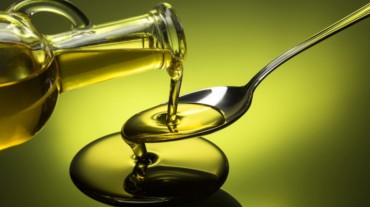
The primary cause of mortality worldwide in recent years has been cardiovascular disease. Although there are many elements that contribute to cardiovascular disorders, diet has a significant impact on them. The modern diet largely depends on edible oils. They not only feed the body with energy but also with necessary micronutrients. However, it’s common knowledge that fats should be avoided. Several edible oils have been shown to significantly benefit cardiovascular health. With so many options available, you may still be confused about the best oils for heart health, or whether butter is better than oil. Let’s find out!
Using plant-based monounsaturated fats is the best oil to lower the incidence of cardiac ailments. If you are using polyunsaturated fats, make sure it is of plant origin too, containing omega-3 fatty acids.

Trans-fats and saturated fats which are of animal origin, including butter, margarine, and tropical oils (palm and coconut) should be completely avoided as these oils increase the chances of getting a heart attack.
A recent US study indicated that a healthy practice to follow for good heart health is replacing butter with olive oil. Replacing margarine, butter, shortening, mayonnaise, and dairy fat with olive oil was found to lower the risk of cardiovascular diseases. However, using olive oil (extra virgin) for deep frying is not recommended. The reason behind this is that overheating these oils can make them lose their nutritional value and produce harmful by-products like peroxides and aldehydes.
Instead of olive oil, you can use sunflower, mustard, and coconut oils for deep frying as these have good heat endurance.
Different oils can be used for different cooking methods. For example, even though sunflower oil is a good source of monounsaturated (MUFA) and polyunsaturated (PUFA) fatty acids, it is not recommended for use in patients with diabetes. The amount of glucose in the blood is known to rise as a result.
Almond, canola, and avocado oils are good for the heart as they contain healthy fats.
Olive, canola, and rice bran oils are considered best for use from the perspective of nutritional content, availability, and affordability.
Also read: Which is the most heart-friendly cooking oil out there? A cardiologist answers

A common mistake that people make while cooking is that they are unaware of oils that should not be used at high temperature. Overheating oil promotes oxidation that releases carcinogens. Any change that takes place in the colour of the oil is an indication of its degradation due to excess heat.
Select Topics of your interest and let us customize your feed.
PERSONALISE NOWAnother unhealthy practice is reusing oil over and over for cooking. This can form free radicals. These free radicals are carcinogenic and not only can cause cancer but also lead to atherosclerosis that can result in blocked arteries due to increase in bad cholesterol levels.
* Oils that are dark in colour or greasy/sticky in texture must not be reused.
* Do not overstock yourself with oil. Be aware of the expiry dates and consume the oil within a maximum period of 12 months.
* Oils should preferably be stored in dry, cool places, away from direct sunlight.
* Avoid overheating the oil while cooking and use only those oils which can endure high temperature cooking.
Also read: If not ghee, don’t look beyond these 7 healthy cooking oils
In a nutshell, the best sources of oils that are heart-friendly (both mono and polyunsaturated) are the ones obtained from natural sources like nuts, seeds, oily fish, avocado, and olive. Hence, it is important to choose the right oils that suit you budget and do not affect your heart.